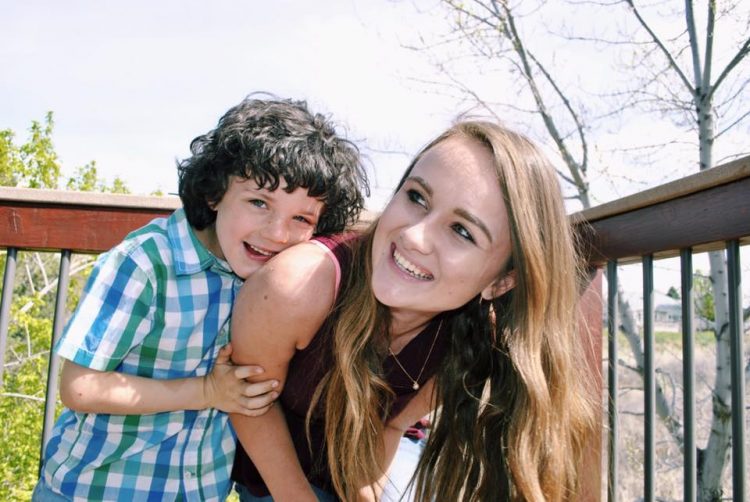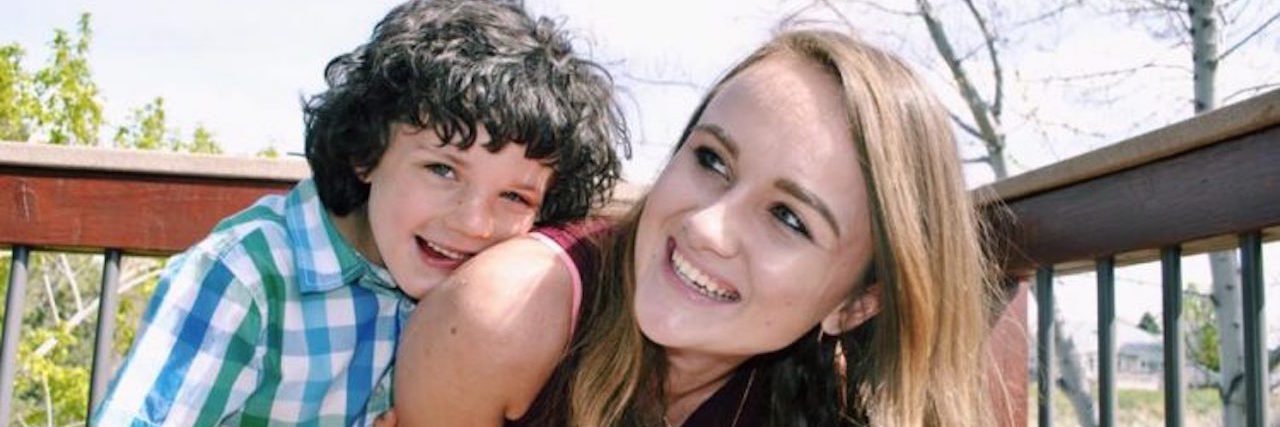Jordan Prochnow, the author, is a student at the University of Iowa.
When my brother Jackson was born, I was his first visitor in the hospital. Before my stepmom was out of the delivery room, I was there with a candy cane Blizzard from Dairy Queen in my hand, excited to meet my first sibling. I was 10 years old and had been waiting for a brother or sister my entire life and now he was here.
Throughout Jackson’s eight years on this Earth, I have had the privilege to teach him so many things I know. I introduced him to “Star Wars,” “Harry Potter,” and Legos. I taught him what he shouldn’t say to girls and how to write short stories. Though I have been able to introduce my brother to so many things, his journey with neurofibromatosis type 1 (NF1) has taught me lessons that are much more important.
Almost a year ago, Jackson went in for an MRI to make sure he would be ready to have a rod put into his back in the fall to correct his scoliosis, a “bonus prize” from living with NF. When the scans came back, doctors found a mass on his kidney’s adrenal gland, which later turned out to be an indicator of neurofibroma cancer. That summer was difficult for my family in many ways, but Jackson never once showed signs of pain or trouble. He passed his swimming test to be able to go in the large pool at the recreation center, played basketball with my friends (and beat me) in our driveway, and continued to be the happy, funny kid everyone knows and loves.
Jackson’s experience with NF has put so much into perspective for me. Whenever I think about a problem I’m facing, or something that is stressful at school, I immediately think of my brother. He can go through a rare and scary condition without fear or protestation, which reminds me to minimize my worries and to face anything with my head held high.
Having a sibling with a complicated condition like NF, especially one so young, can be difficult at times because there is so little information and awareness surrounding it. The experience can feel isolating. Some symptoms and characteristics of NF don’t show up until puberty or later, which can make me anxious and nervous for my brother’s future. A woman I spoke to who has a young son with NF told me she thinks of all of the possibilities as “a horrible list of uglies,” since it can be easy to overthink and worry too much about all of the what-ifs.
Whenever I start to think about all of the things that could go wrong for Jackson, I look at the sweet, loving boy in front of me, and I am reminded of the fact that he does not appear to be afraid. He doesn’t think about all the potential problems in his future. He thinks about playing soccer in the fall, of watching the next “Harry Potter” movie, or playing with his friends all summer. Even in the darkest times, he brings so much light to the situation.
Right after his tumor was removed, he was laying in the recovery room, still somewhat sedated from the anesthesia. My stepmom was spoon-feeding him a slushy, and in between bites, he was making a sound that sounded something like air leaking out of a tire. I started giggling in spite of myself; after all, this was the first time I had seen him after surgery, and I was just relieved that he was awake. He saw I was laughing, and sort of smiled, then kept doing it for another few minutes before he fell back asleep. Even though he was physically and emotionally exhausted after a big operation, he still was trying to make me laugh.
For Mother’s Day this year, Jackson painted a self-portrait for my stepmom. My dad showed me the picture and pointed out a detail that both made my heart ache and gave me immense pride: Jackson painted his cafe-au-lait spots on his neck. Later that day, while we were having a Nerf gun battle, he went to grab a cardboard shield. I immediately protested, telling him that protection was unfair, and he stopped, turned to me, then said, “I want to shield my back so the rod won’t get hurt.”
No matter what struggles he faces, Jackson never complains. Sure, he hates blood tests. He doesn’t like going to the hospital for long amounts of time. But even through the worst parts of having this condition, he faces everything with so much grace and
courage.

This story originally appeared on the Children’s Tumor Foundation blog

